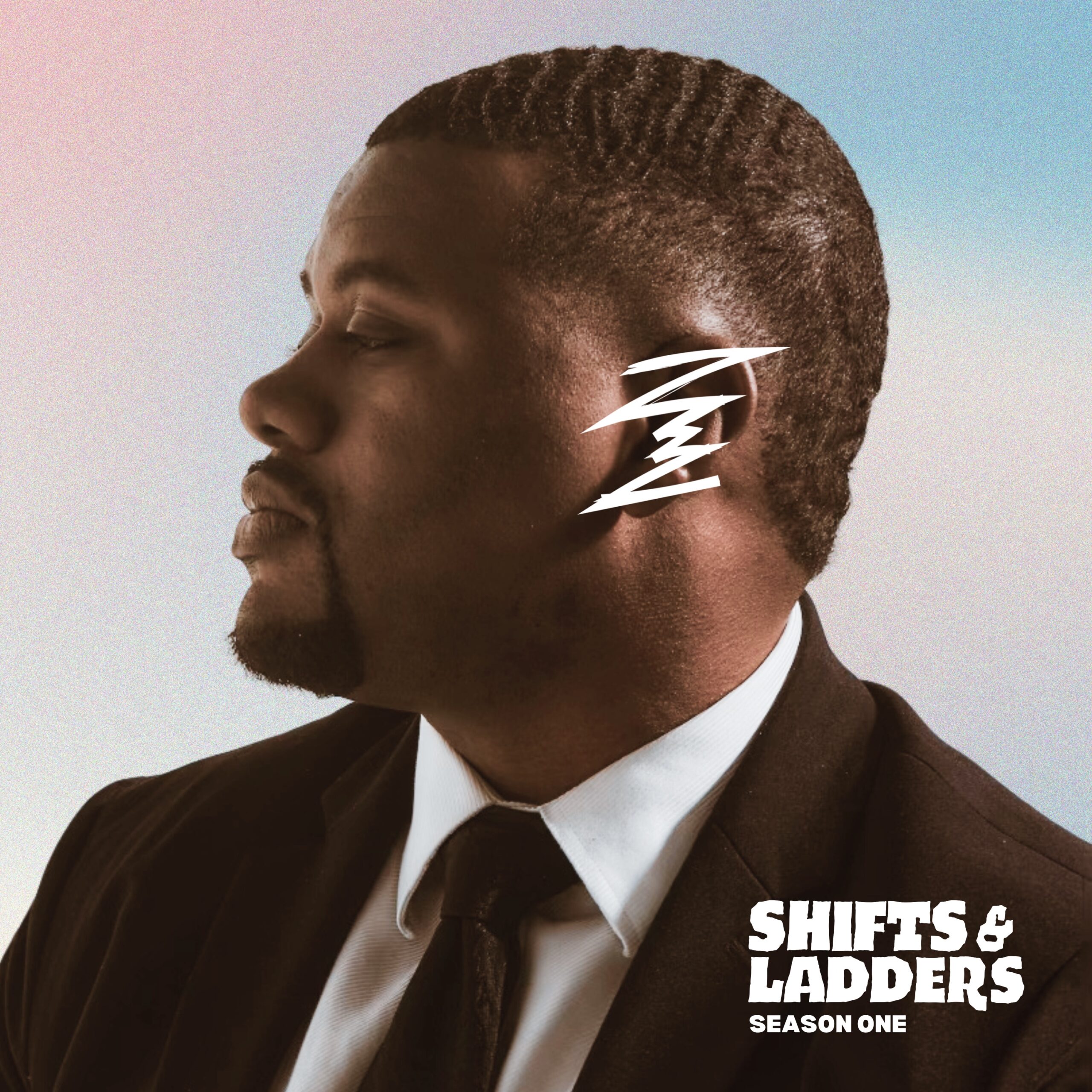Episode Transcript
[00:00:21] Hello, ladies and gentlemen. Welcome back to life Refresh podcast asked. You already know who it is. It is Ryan Robinson. Hey, if you haven't yet share this podcast with someone, we are going to be completing this last podcast for talking about what we all care about is value. But what do we exchange in return for that value? Or maybe perceived value? We initially started talking about King Solomon, and Solomon being an individual who has not just been the wealthiest king that has ever lived, but also the wisest king. So we understand that there was an exchange that took place for the wisdom of Solomon, for treasure. And then we go to the second part where we talked about his son, Rayhome, who had exchanged that wealth for foolishness and did and utilized resources that pretended to be what was truly valuable, which was the knowledge, the wisdom, but most importantly, the presence of God, which was determined and actually materialized in the form of gold in the temple. But also in that case, because he traded that particular metal, a presence or gift of God's presence, for something that was less malleable, which was bronze, which requires more beating. It's tougher, more of something that if you buff and work out, it could look good, but over time, can actually tarnish you. It was, again, a depiction of things to come. So many of us kind of go in one of those two places. Either we have knowledge and wisdom, but don't exchange that, or people don't necessarily see the value of what you know and don't bring an equitable or an equal item of value, because they recognize that the wisdom that you have is something that is more important than the actual physical things that you may produce. So people pay for people's knowledge. We live in what we call a knowledge economy. Many of us aren't building things anymore from our hands, but we are building things and conducting things with our mind.
[00:02:46] Therefore, what you have in your mind is valuable. Therefore, there's a currency that is exchanged for that. But if you discount it, like Raya Bohem did, where he did not see the value of his father's advisors, but saw the value of his friend's perspective, he ended up causing what we are experiencing, the split of a great kingdom, by which at one point, silver was like stones that you just kick around.
[00:03:16] So this last one I'm going to talk about. I don't want to go too much further into those two topics, but I wanted to say, like, hey, what did Solomon say to his son?
[00:03:28] And what values did he exchange or put down on paper to help guide his son into kingship? Now, many of us. If you have children, hand off these idioms of knowledge, whether it be a quote or two, wisdom that we try to impart into a younger generation so that perhaps they may pick up or avoid what you had to learn by the cost of experience. So in many cases, the value proposition or the value exchange is, I'm going to give you knowledge in exchange for the cost of experience. Because, ladies and gentlemen, experience is expensive.
[00:04:16] It is an expensive cost to pay. And as a parent, I would prefer my children not to pay that particular cost because of their foolishness. But they got to avoid that and get on a fast track to whatever God has designed for them. Now, I can't keep them from learning and avoiding everything because experience shapes character as well. So by all means, I don't want to protect them from everything, but if there are some things that I know would derail them a couple of years, 720 days of life.
[00:04:56] Did I do that math right?
[00:04:59] Sorry. 330 days. You all catch what I'm saying? Whether the math is right or math is wrong. You all catch my drift. But I want to make sure that my children, or anyone who's listening, gets to avoid these damage points or bumps in the road.
[00:05:19] And I talked about this before, but for sake of our time, the book of proverbs is a book of wisdom, of godly wisdom.
[00:05:32] Now, if we want to really go into definition of wisdom, there is a difference between knowledge and wisdom. Okay? So you can know knowledge, you can read the books, you can do all the studying, you can do all the great things, you can do what you can do with the information you have, so you gain knowledge reading books, all that kind of stuff. But wisdom is knowledge applied in the correct way.
[00:06:04] Say that again. Wisdom is knowledge applied in the correct way. Okay?
[00:06:12] It's like using a tool. I'm not handy, but I can use. There are certain bits that are required for screws and such. So if you don't use the right tool, you know you need a tool, but you don't use the right one first, you have the knowledge that you need to use it, but you don't have the wisdom to use the right one. So that is what the book of Proverbs is. It is coming from God inspired King Solomon, who, again, was the wealthiest, wisest person to have ever lived. And he wrote these things down for his son, for his, that because he knew there wasn't going to be anyone wiser than him. So he's like, okay, I need to make sure I get all this wisdom down so I can help him in his reign as king.
[00:07:08] But clearly there are some things he didn't read. So I'm just going to read, first off from proverbs eleven. And in here there is a lot of exchanges. Okay? So I'm going to read a few of them. But as I kind of anchor this, I want to expound upon some of these because I think in learning these, it'll actually help us understand the value of wisdom. Because to many people, they're just words on a page.
[00:07:45] But there is life in these words.
[00:07:49] So taking this and reading it gives you knowledge.
[00:07:54] But applying these principles, which are timeless, is extremely important. So I'm a read. I'm in Proverbs chapter eleven. There's 31 chapters in the Book of Proverbs, meaning there's a proverb every day that you can read. So if you are more than inclined to read the book of Proverbs and read a chapter a day and not feel as if you are getting inundated with too much information, so I'm going to go to verse ten. I'm going to start at verse ten. Now, there's a whole bunch of exchanges. So here it is. When it goes well with the righteous, the city rejoices.
[00:08:44] When the Wicked perish, there are shouts of gladness.
[00:08:49] Another one, value proposition. By the blessing of the upright value, a city is exalted. There's an exchange, but by the mouth of the wicked, it is overthrown.
[00:09:02] Verse twelve. Whoever belittles his neighbor lacks sense, but a man of understanding remains silent.
[00:09:11] Whoever goes about slandering reveals secrets. But he who is trustworthy in spirit keeps a thing covered.
[00:09:20] Where there is no guidance, a people falls.
[00:09:25] But in an abundance of counselors, there is safety.
[00:09:30] Whoever puts up a security for a stranger will surely suffer harm.
[00:09:37] But he who hates striking hands and pledge is secure.
[00:09:42] I'm going to stop there.
[00:09:45] So I'm utilizing these particular scriptures. For one thing, there is a value at the end of an action. Okay? So with the transaction, and these are all listed in the book of proverbs, because I want you all to see that no matter what you are studying well in proverbs, no matter what you're seeing in proverbs, no matter if it's chapter ten or chapter eleven or 26 or 31, there is always an exchange in wisdom. Okay, I've just popped up one here. A slack hand causes poverty, but a hand of the diligent makes rich. There's a value exchange to something. There is what we call cause and effect, or in many cases, the Bible talks about. Sowing and reaping, meaning you plant something, you're going to reap something. So if I plant an apple seed, I expect to get apples when it's harvest time. But if I plant apples and I expect oranges, that doesn't work because I didn't plant that.
[00:11:00] So wisdom tells us if I do this thing, there is an effect because I did it, okay? And these principles are heavily done. And again, these are also, if we look at physics and I'm going to pull it up for us. Give me 1 second here. Okay, I got it. So there is a principle that says this, and it's the microcosm principle.
[00:11:32] And it's a theory here that says this.
[00:11:36] All principles are microcosms of each other, okay?
[00:11:43] All principles are microcosms of each other. And this is the thing, y'all. What does that mean? If it happens to work in one space, in one area of your life or in the world, it can happen in another. Now, the best example of this that we've seen is, I would say maybe Steve Jobs. Steve Jobs is a great, at least his information, his experience is one. He's not Solomon by any means, but he has a great example of this.
[00:12:23] In the early days before Apple, Steve Jobs, if many of you don't know, was the founder or co founder of Apple with Steve Wozniak.
[00:12:36] And one of the things that he did is he went to college, but did not find college meaningful to him, so he quit. And during that time, when he quit, he would just jump into classes and get information that he wanted to learn about. So one of the classes that he really taught liked was a calligraphy class. Now, how does Steve Jobs and calligraphy work together? Ladies and gentlemen, let me help you. So Steve Jobs exposure to calligraphy actually brought, he took that experience and brought it to a computer.
[00:13:17] Before there was any nice text on your Mac or your pc, it used to just look like a green screen with digitized pieces on the screen.
[00:13:30] And he essentially said, well, why can't we just change the fonts by which we use and create and utilize a system called a graphics user interface, which is gui, that's what the acronym is, and essentially be able to change the way icons look on the screen and change the text. So without going into further depth, the reason why you have beautiful text on your laptop, in your browser and on your phone is because Steve Jobs took something that he saw in writing and applied that particular text in an area that did not necessarily utilize that. Okay?
[00:14:13] That becomes an opportunity for you to be a well rounded individual, which is what he believed in. Apple actually believed in having a liberal arts exposure, that they are the intersection between technology and liberal arts, which basically says you can utilize this tool in all aspects of your life so that it can enhance it and not be a detriment to you.
[00:14:39] So that is what Steve Jobs brought. He brought something that had nothing to do with computers and brought that over here. So what I'm saying to you is that this particular principle is necessary because Solomon brings in things that you typically would not have seen in your experience. It makes sense mentally, but then also like, oh, this is wisdom that is just out here. So the scripture that I spoke on earlier here that says, oh, this is a good one, in verse eleven says, when pride comes, then disgrace.
[00:15:21] But with the humble is wisdom. Most people don't like people that are proud. They have pride. And because of that, there's disgrace. Old King James version says, pride comes before destruction, a haughty spirit before a fall. So there is this wisdom that, yeah, it makes sense, but you never think that you could apply that particular principle in every situation you run into. So if you find a prideful person in your workplace, and you find a prideful person in your basketball team that you have inner murals with at the gym, it doesn't matter. It can still be applied in every situation, every place that you find another one here. The integrity of the upright guides them, but the crookedness of the treacherous destroys them. Whether you find a crooked person on Wall street or you find an honest person in a presidential role, whatever the case is, the principle is going to work. It does not constitute or does not discriminate by the area.
[00:16:31] It says who it is. And it's a principle that happens. So what I'm reading to you all are biblical principles that work no matter where you go. Okay?
[00:16:44] I believe that these work no matter where you go. And honestly, a lot of these are already derivatives that you've read in a book somewhere.
[00:16:51] I guarantee it. If you look it up, it might reference the Bible in many cases. But there are principles here, there are principles that are utilized, and that is the key to value exchange.
[00:17:08] If you follow principles, you will end up like Solomon, where people will come to you, they will get information from you. And because of that, the things around you will be blessed, because God will bless that. Not just your acquisition of information, but your wisdom to properly apply that wisdom that can give and bring value to other people.
[00:17:36] Okay? But if you do what Raboam had done, which ignored wisdom, ignored the group, ignored wise counsel, you will end up with what he ended up with, which was a split kingdom, because he was foolish. And I'm saying people are foolish.
[00:18:02] Some of us are smart, but do foolish things.
[00:18:06] It's our decision making that's foolish, not who we are as individuals. So I want you all to understand that this book is not just a book that you can just pass over and just pick from.
[00:18:20] There are principles that are actually in practice in the Bible that you see have been broken or have been followed that can really open up things for you in your life.
[00:18:35] I just don't read the book of Proverbs, though. So with anything that comes with instructions or when you buy something, you buy a laptop, buy a tv, many of you guys probably already know what to do, but there are instructions that come with anything that requires assembly.
[00:18:56] And the Book of Proverbs has a chapter and chapter one, and this chapter one. And I'm going to read it to you, and I think we'll conclude on this.
[00:19:12] The Book of Proverbs has a disclaimer, and Solomon was wise enough to make sure that there's a disclaimer. Now, again, consider this book a series of. Okay, but this particular start is what's important. It's the crux to all of this, because you can literally go through all of this stuff and not understand where the wisdom came from, because knowledge and not understanding where the knowledge and the wisdom comes from can actually make you prideful. Okay, so I'm going to read this, and then we're going to go and we're going to call it a pod. All right, so proverbs, chapter one, verse one. We're going to start there.
[00:19:55] Proverbs. The proverbs of Solomon, son of David, king of Israel. To know wisdom and instruction. To understand words of insight. To receive instruction in wise dealing, in righteousness, judgment, and equity. To give prudence to the simple knowledge and discretion to the youth. Let the wise hear and increase in learning, and the one who understands obtain guidance. To understand a proverb and a saying the words of the wise and their riddles. The fear of the Lord is the beginning of knowledge.
[00:20:37] Fools despise wisdom and instruction.
[00:20:44] There it is, ladies and gentlemen.
[00:20:47] Fear of the Lord. Not saying you need to be scared of him, but you need to acknowledge the smartest thing to do is acknowledge that God is who he says he is.
[00:21:01] If you don't even get that, that's the basics foundation for which chapter one through 31 build off of.
[00:21:11] Okay, I really like this particular teaching around value exchange. I think we trade in stuff too much.
[00:21:21] We trade in people. We trade in things because we perceive that the value is greater on something newer, even if it's washed up.
[00:21:32] Even though what we think we have is not worthy enough, we will still trade it easily because of what we think is shiny and new.
[00:21:40] And these podcasts don't just hit they're teachings, but these hit me first. They are something that I find is important because I'm going through stuff like this myself, being transparent. So these don't just come off like, oh, Ryan just wrote a sermon, Ed, or anything like that. No, ladies and gentlemen, I'm living this.
[00:22:07] So the value that we exchange for affirmation, for love, for whatever it is, you have to be the determiner of how much are you going to put yourself on discount?
[00:22:28] Or if you're going to raise your price and recognize I'm worth it, what I have in me is worth it.
[00:22:38] And I'm not going to just be subject to getting traded in because of some circumstances that happen or because no one wants to listen. Like Raya Bo, he wants to keep relationship with his friends instead of listening to people who have gone through some stuff before. So I really believe in this message because of what we experience in a trade in economy that we have. Ladies and gentlemen, thank you so much for your time. As I said before, in the beginning of this podcast, send this to somebody, send it to your friend, send it to someone that you may think is feeling low, someone that needs some help, because I believe that this will be able to encourage you, build you up and bless you in some way, shape or form. But we'll catch you in the next pod. Peace.




